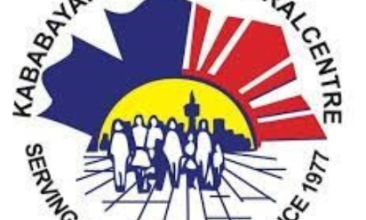Private sponsors and settlement workers share the same goal : to support the successful settlement of sponsored refugees to Canada.
Private sponsors commit to providing financial and non-financial support, such as emotional and settlement support, to the refugee(s) they sponsor. When submitting their sponsorship application, they have to prepare a settlement plan. The aim of the settlement plan is to help sponsored refugees integrate into Canadian society and be able to become fully autonomous by the end of the sponsorship period.
However, private sponsors might not be experts in settlement or in certain topics.
What do settlement workers do?
A settlement worker is a person employed by a community organization to support immigrants and refugees. They work directly with immigrants and refugees by helping them navigate the systems and services in their new home.
These are some of the typical tasks that settlement workers perform:
- Assessing needs and creating settlement plans
- Providing orientation sessions about housing, employment, education, transportation, and other relevant topics
- Helping fill out forms to apply for government programs and benefits
- Referring to programs and services
- Tracking need for Advocating for their client with institutions, employers, or landlords
- Educating newcomers about their rights and responsibilities
- Providing information (but not advice!) about Canadian law
- Providing interpretation and translation at doctors’ offices and schools
They are the experts in settlement support and services and can offer guidance to both refugees and their private sponsors.
When should private sponsors contact settlement agencies?
Immigration, Refugees and Citizenship Canada (IRCC) requires sponsors to identify in their settlement plans which immigrant settlement agencies are available. This will ensure accessible support for the sponsored refugees.
Settlement workers can help the sponsors even before the sponsored refugees arrive.
During the pre-arrival period, settlement workers can help sponsors find affordable housing, furniture and household items. They can also discuss possible interpretation and health care needs.
After the arrival of the refugees, workers can conduct a needs assessment and help with administrative forms and appropriate program referrals. The referrals are likely to be with health services and employment support, language training and credential evaluation.
Sponsored refugees will be able to access settlement services, even after the end of the sponsorship period. Some programs are available even after newcomers become citizens.
Overall, private sponsors remain responsible supporting the refugees they sponsor. By using services offered by settlement agencies, they can provide the best possible support facilitating the transition to Month 13 and ultimately successful integration of the refugees within Canadian society.

